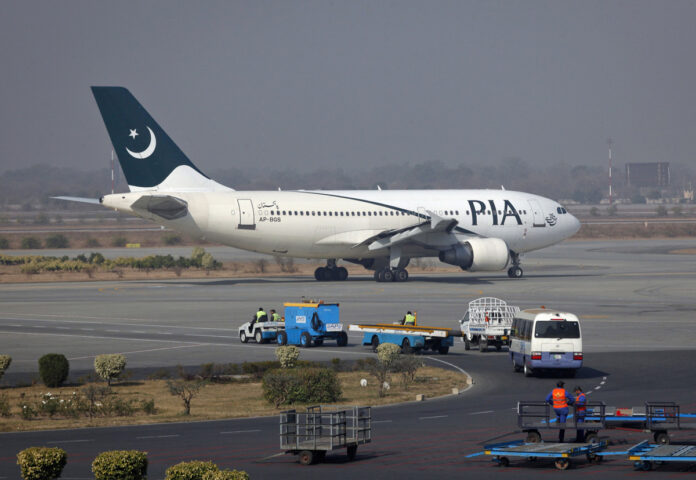KARACHI: The Pakistan International Airlines (PIA) is expected to incur losses of Rs100 billion due to suspension of international flights amid coronavirus pandemic.
As per details, the PIA is expected to incur losses up to Rs100bn due to ban on flight operations by the United Kingdom, European Union and the United States. The target of revenue for the current year was set at Rs196 billion.
Moreover, the national flag carrier would also suffer losses of up to Rs12 billion in terms of Hajj operations this year after the Saudi authorities decided to hold the annual pilgrimage on a limited scale, while the airline is also facing losses up to Rs9bn due to closure of Umrah operations.
It is pertinent to mention here that that on July 10, PIA CEO Air Marshal Arshad Malik apprised Prime Minister Imran Khan regarding the status of ongoing dialogues with European Union Aviation Safety Agency (EASA) for the resumption of flight operation. He also gave a briefing to the premier regarding the restructuring process of the national carrier.
Malik also presented a comprehensive plan to PM Imran for turning PIA into a profitable national entity. The prime minister directed the PIA CEO to expedite the reform process of the national flag carrier and summoned the framework for reform agenda within seven days.





When is PIA going to be shut?
Not sold. Closed down.
Enough taxpayers money has been wasted giving time to the staff and management to get their act together, and at least be self-sustaining. This money can certainly be put to better use, like helping small businesses and education.
A bloated, entitled work-force with a serious lack of professionalism needs to be given a reality check. Which private-sector commercial entity could continue year after year with bail-outs as PIA is doing?
kiyun kisi ki kamai ko khatam kur rahay ho 🙂 ?